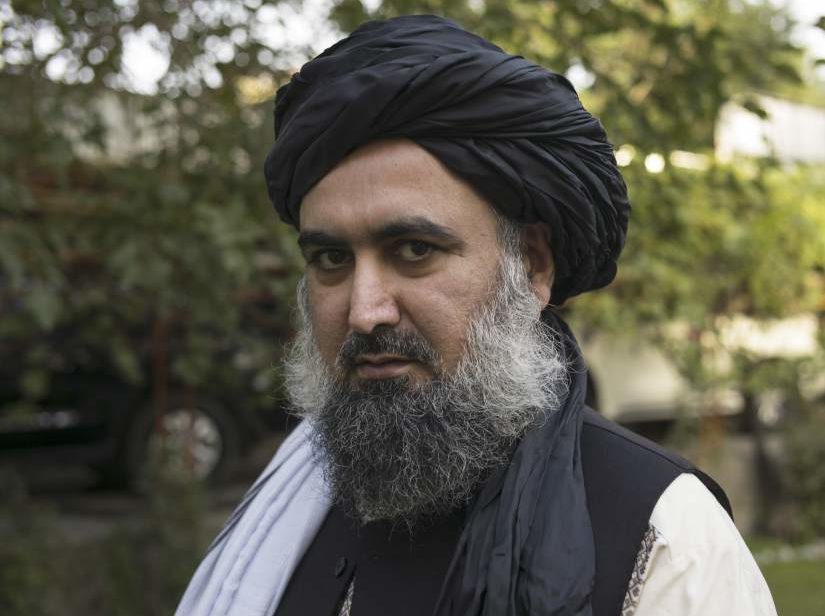
The periodic statements and warnings issued by the reclusive Afghan Taliban chief, Mullah Omar – usually around the time of Eid – always provide an insight into his thinking and the Taliban’s position on various issues. The statement issued on 25 July is no different.
There has been much speculation about differences between the military and the political command of the Taliban over the reconciliation process. While the latter has been open to the idea of engaging with the international community, the former has been opposed to it. Mullah Omar’s latest statement, however, shows that despite his amicability to the process, the prospects for the new Afghan president to achieve a breakthrough with the Taliban are quite remote.
There are three main takeaways from his statement that point in this direction. The first concerns the Afghan elections and how that is likely to colour the Taliban’s perception of the next government. Omar criticised the elections as a “fake process”, where the selection is made by the US. As “power is in the hands of the invaders”, the US agenda is implemented through its “internal allies” with no consideration for the interests of Afghanistan or its people.
This is consistent with the Taliban’s previous statements on the elections. Over the past two years, the Taliban has already rejected the electoral process on numerous occasions. Mullah Omar himself claimed that the elections were a “waste of time” in his Eid message last year.
The Taliban’s rejection of the elections suggests that it will view the new leadership in Kabul in the same vein as it has viewed the incumbent president, Hamid Karzai. Karzai has been labelled a Western puppet and his government the “invaders-installed administration.” Ashraf Ghani – the leading presidential candidate as per the disputed preliminary results – has already been described by the Taliban as the best candidate to further American interests in Afghanistan on account of his education and stay in the US. In its statement, the insurgent group also claimed that Ghani will emerge victorious in the elections for this reason.
This denunciation of the electoral process, and consequently the next president, will create roadblocks for any progress in the reconciliation process. The Taliban has used its perception of the current government as a pretext to reject any peace overtures. It is thus unlikely that the new leader will be able to make much headway with the Taliban after assuming office.
Besides the group’s perception of the present and future Afghan government, its perception of itself as the legitimate government of Afghanistan – the Islamic Emirate – that was illegally usurped by foreign invaders in 2001 is another obstacle.
The Afghan government and the international community have been pushing the Taliban into opening a political office that can facilitate the peace talks, but not serve as an embassy of the Islamic Emirate as desired by the Taliban. It was differences over the purpose of such an office that resulted in its premature closure in July 2013.
Omar’s statement suggests that the Taliban continues to view the purpose of an office as a front from where it can liaise with the international community. He claimed that due to the efforts of the political office the “Islamic Emirate has gained a political façade” among the international community, which has now “come around to accept the Islamic Emirate as a reality.” Omar also credited the office for facilitating the prisoner exchange with the US – in return for the release of US Sgt. Bowe Bergadahl – in May describing it as a “spectacular achievement.”
Finally, Omar’s comments about the American military presence in Afghanistan post-2014 are also important from the perspective of the reconciliation process. Omar warned that “presence of limited number of troops under whatever title it may be will mean continuation of occupation and the war”. He asserted that the war in Afghanistan “will come to an end when all foreign invaders pull out of Afghanistan.”
The Taliban has repeatedly demanded the complete withdrawal of all foreign troops from the country as one of its preconditions for entering into a peace settlement. It has denounced the Bilateral Security Agreement (BSA), which outlines the nature and size of the US military presence in Afghanistan post-2014, and called upon the Afghan government to reject the BSA as well.
However, both Abdullah Abdullah and Ashraf Ghani have indicated their willingness to sign the BSA after the elections. Thus, it is likely that the US will continue to maintain a residual force of about 10,000 to 16,000 troops in Afghanistan post-2014, thereby providing the Taliban, and especially the hardliners within the movement, with another excuse to prolong its military campaign.
***
Image: Robert Nickelsberg, Getty